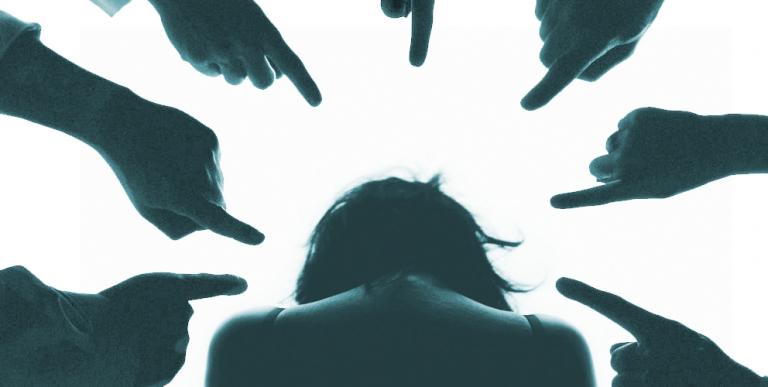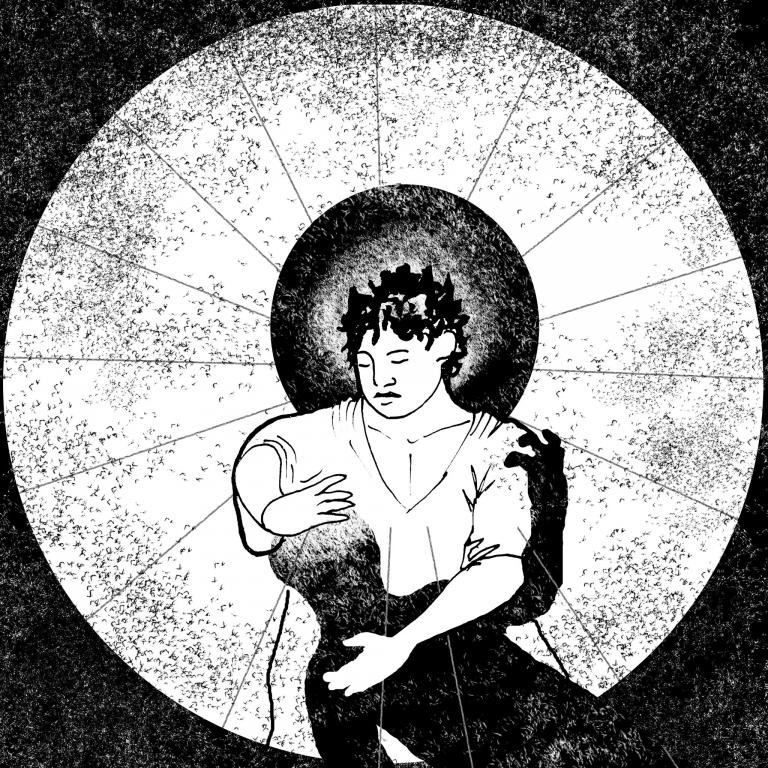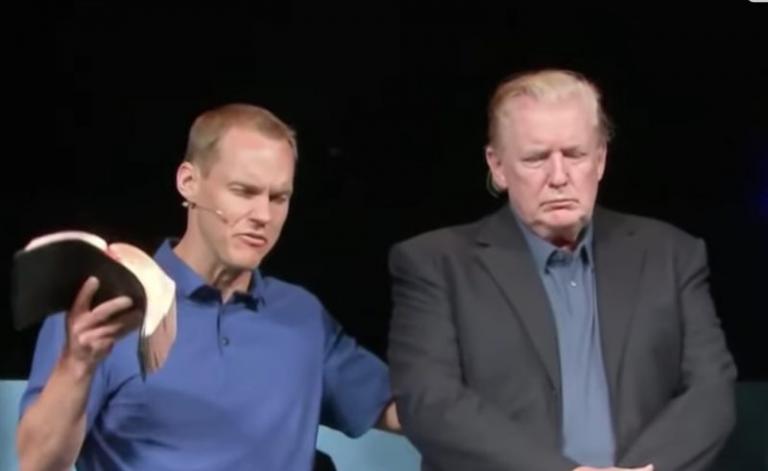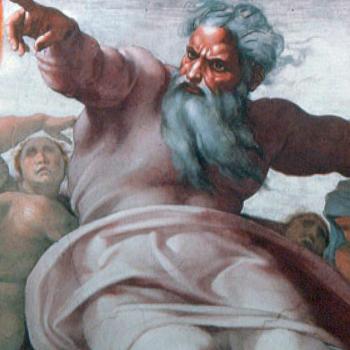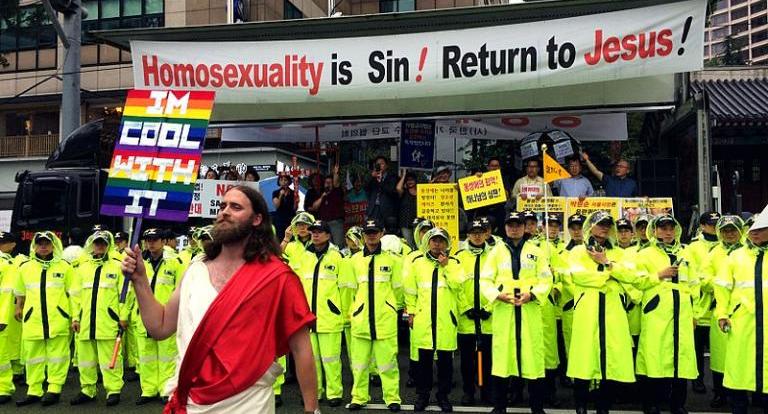
We’re well past the half-way mark into Donald Trump’s presidency. Progressives have seen, and continue to see, their worst fears coming to life. Xenophobic policies have brought immigration to a trickle, scapegoated Latin American refugees, and turned the border wall into a fascist symbol of hate. Islamphobic wars continue, with an intensification of drone strikes (now with a brazen disregard for civilian casualties). We are on the brink of a whole new oil-war with Venezuela. Trump’s son-in-law is discussing bringing nuclear capabilities to Saudi Arabia. And the dismantling of environmental protections, social programs, and civil liberties continues.
These are grim days for the American experiment.
What we see now, in Trumpian neo-fascism is a continuation of America’s original sins. And the worst imperial impulses of the United States of America find their root in a form of Christianity that legitimizes militarism, economic exploitation, racism, xenophobia, and sexism.
By now, most of us have learned that 81 percent of white evangelicals who cast their vote did so for Trump. And the same is true of 60 percent of the white Catholics who voted. And, lest mainliners feel off the hook,
58 percent of Protestants, in general, voted for Trump. And while one would hope such voters have since repented for the political mistakes, Trump
currently enjoys an 88% approval rate among republicans. It is easy to see the ways in which current social injustices reflect the commitments of conservative white Christianity.
Yet any blame we place on Trump, his administration, and their legislative accomplices must be cast wider. Trumpian neo-fascism is simply the latest fruit from a much older tree. As my representative Ilhan Omar
recently stated:
“We can’t be only upset with Trump. … His policies are bad, but many of the people who came before him also had really bad policies. They just were more polished than he was,” she said. “And that’s not what we should be looking for anymore. We don’t want anybody to get away with murder because they are polished. We want to recognize the actual policies that are behind the pretty face and the smile.”
It isn’t enough to challenge conservative Christianity and the ways it has nurtured a toxic form of Christo-fascism; we need to challenge progressive Christianity, as well.
Progressive Christians, out of a sense of politeness, unity, and respectability, have failed to challenge directly those churches that provide the theological justification that gave us Trump. We have learned only half the message of Dr. King:
I have almost reached the regrettable conclusion that the Negro’s great stumbling block in his stride toward freedom is not the White Citizen’s Counciler or the Ku Klux Klanner, but the white moderate, who is more devoted to “order” than to justice; who prefers a negative peace which is the absence of tension to a positive peace which is the presence of justice; who constantly says: “I agree with you in the goal you seek, but I cannot agree with your methods of direct action”; who paternalistically believes he can set the timetable for another man’s freedom; who lives by a mythical concept of time and who constantly advises the Negro to wait for a “more convenient season.” Shallow understanding from people of good will is more frustrating than absolute misunderstanding from people of ill will. Lukewarm acceptance is much more bewildering than outright rejection.
Many of us have heeded King’s words to the point that we are willing to make strongly worded statements on social media. Some will raise our angry voices in the streets. Our clergy will don their collars and stoles to attend justice rallies. A handful will join movements like Black Lives Matter to shut down the interstate. Fewer still will make the trek to Standing Rock.
But our myths weren’t born on the streets. Our most pernicious and toxic habits and beliefs were forged in the pulpits of thousands of congregations. As my dear friend, Pastor Jin Kim of Church of All Nations, says: “The church provides the foot soldiers for the American Empire.”
Nevertheless, while a growing number are willing to protest in the political arena, a precious few are willing to do so in the church. We have made unity an idol. In the Body of Christ, we prefer “a negative peace which is the absence of tension to a positive peace which is the presence of justice.”
Let us take an ax to the root. Our nation’s Christian roots aren’t incidental to our imperialism; they are central.
The engine of Western imperialism is the quasi-Christian set of national myths that teach us that we, uniquely, embody the good life and should spread that life to the rest of the world. This Christian supremacy has been the justification for the deepest of our national sins.
White supremacy is the child of Christian supremacy, which elevates civilized Europeans over the rest of humanity, and turns creation into something exploitable.
Sexism, heteronormativity, and transphobia are rooted in religious dogmatism. Most recently, this can be seen in the vote of the United Methodist Church to
double-down on it’s collective belief that homosexuality is incompatible with their faith. Such official positions directly contribute to violence against our LGBTQI+ kin, who experience violence and homelessness at higher rates, largely driven by religiously-inspired intolerance.
If we want to confound and disrupt the narratives of oppression, we need to raise our angry voices in the pews as well as the streets.
I don’t mean that figuratively. I’m not advocating that we send challenging statements to our denomination’s national assemblies. I’m not suggesting that we start or join a justice committee in our church. I’m not even suggesting that we withhold tithes until our churches demonstrate a willingness to take the radical message of Jesus seriously (though that last one would be a great start).
I literally mean we should disrupt our churches. Just as Black Lives Matter employed a politics of disruption to raise the national alarm about racist policing. Just as the water protectors at Standing Rock have created a human barrier against pipeline construction. So too, should we disrupt and confound any and every congregation that fuels militarism, economic exploitation, sexism, racism, Islamophobia, or transphobia.
While such an approach is uncomfortable and risky, it is hardly novel. We worship a man who marched into the Temple during its most busy week, disrupted its market place, and proceeded to occupy it for a week while telling stories that overtly undermined the authority of the priests and scribes and exposes their complicity with Rome.
Jesus was so offensive that “the chief priests, the scribes, and the leaders of the people kept looking for a way to kill him.” Jesus, like all the prophets before him, disrupted the injustices of their day by going to the center of myth making. They went to the Temple, the palaces, and the places of sacred meaning. And with bold words and deeds, they disrupted.
And it was, I believe, effective. Conventional wisdom tells us that interstate shut downs or Temple disruptions only “hurt the message.” But Paul Engler, director for the Center for Working Poor in Los Angeles, suggests that divisive tactics like those employed by Black Lives Matter and other groups force people to form an opinion about issues even if they disapproved of the tactics being used. He and his brother Mark write, in their book
This Is an Uprising: How Nonviolent Revolt Is Shaping the Twenty-First Century:
“Time and again, patterns of polarization appear in democratic movements in the United States and abroad. Looking back from the safe removal of history, it can be easy to imagine that landmark social and political causes of the past–whether they involved ending slavery, securing the franchise for women, or establishing standards of workplace safety–were popular and widely celebrated. But the truth is that, in their time, these issues generated tremendous controversy. In promoting them, activists had to make the difficult decision to invite division and acrimony before they achieved their most impressive results.”
This is an Uprising, page 208
We need to do likewise — even if it offends our sensibilities and challenges our desires for unity. It isn’t enough to simply offer an alternative Christianity; we must disrupt the way a distorted gospel fuels imperialism.
It is time that we don the prophetic mantle within our churches and engage tactics of disruption so that Christians no longer feel comfortable going about business as usual. So that the vast and moderate middle is forced to contend with the issues and no longer remain complicit with the ways that Christianity has been used to justify oppression.
 We’re well past the half-way mark into Donald Trump’s presidency. Progressives have seen, and continue to see, their worst fears coming to life. Xenophobic policies have brought immigration to a trickle, scapegoated Latin American refugees, and turned the border wall into a fascist symbol of hate. Islamphobic wars continue, with an intensification of drone strikes (now with a brazen disregard for civilian casualties). We are on the brink of a whole new oil-war with Venezuela. Trump’s son-in-law is discussing bringing nuclear capabilities to Saudi Arabia. And the dismantling of environmental protections, social programs, and civil liberties continues.
These are grim days for the American experiment.
What we see now, in Trumpian neo-fascism is a continuation of America’s original sins. And the worst imperial impulses of the United States of America find their root in a form of Christianity that legitimizes militarism, economic exploitation, racism, xenophobia, and sexism.
By now, most of us have learned that 81 percent of white evangelicals who cast their vote did so for Trump. And the same is true of 60 percent of the white Catholics who voted. And, lest mainliners feel off the hook, 58 percent of Protestants, in general, voted for Trump. And while one would hope such voters have since repented for the political mistakes, Trump currently enjoys an 88% approval rate among republicans. It is easy to see the ways in which current social injustices reflect the commitments of conservative white Christianity.
Yet any blame we place on Trump, his administration, and their legislative accomplices must be cast wider. Trumpian neo-fascism is simply the latest fruit from a much older tree. As my representative Ilhan Omar recently stated:
We’re well past the half-way mark into Donald Trump’s presidency. Progressives have seen, and continue to see, their worst fears coming to life. Xenophobic policies have brought immigration to a trickle, scapegoated Latin American refugees, and turned the border wall into a fascist symbol of hate. Islamphobic wars continue, with an intensification of drone strikes (now with a brazen disregard for civilian casualties). We are on the brink of a whole new oil-war with Venezuela. Trump’s son-in-law is discussing bringing nuclear capabilities to Saudi Arabia. And the dismantling of environmental protections, social programs, and civil liberties continues.
These are grim days for the American experiment.
What we see now, in Trumpian neo-fascism is a continuation of America’s original sins. And the worst imperial impulses of the United States of America find their root in a form of Christianity that legitimizes militarism, economic exploitation, racism, xenophobia, and sexism.
By now, most of us have learned that 81 percent of white evangelicals who cast their vote did so for Trump. And the same is true of 60 percent of the white Catholics who voted. And, lest mainliners feel off the hook, 58 percent of Protestants, in general, voted for Trump. And while one would hope such voters have since repented for the political mistakes, Trump currently enjoys an 88% approval rate among republicans. It is easy to see the ways in which current social injustices reflect the commitments of conservative white Christianity.
Yet any blame we place on Trump, his administration, and their legislative accomplices must be cast wider. Trumpian neo-fascism is simply the latest fruit from a much older tree. As my representative Ilhan Omar recently stated:


